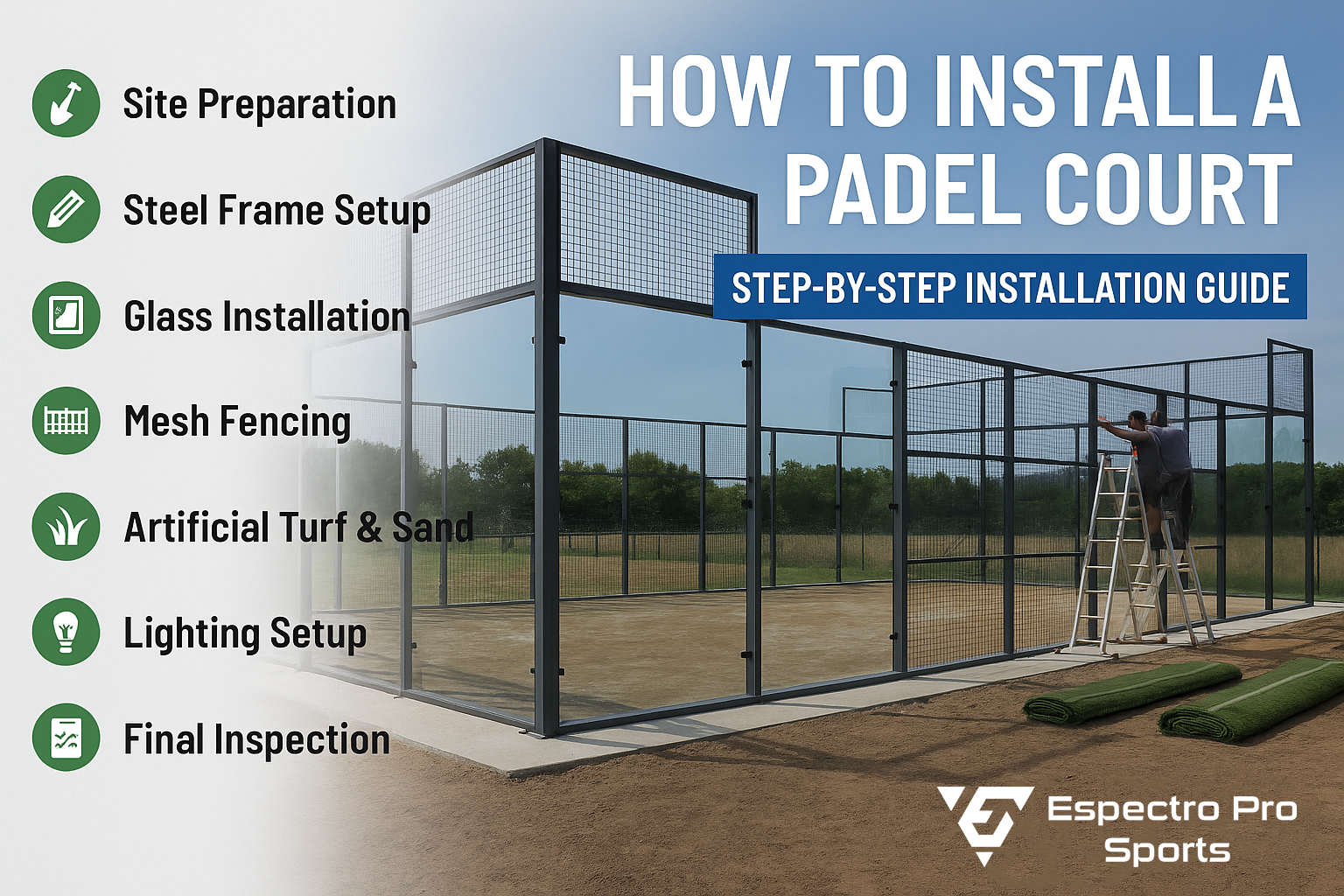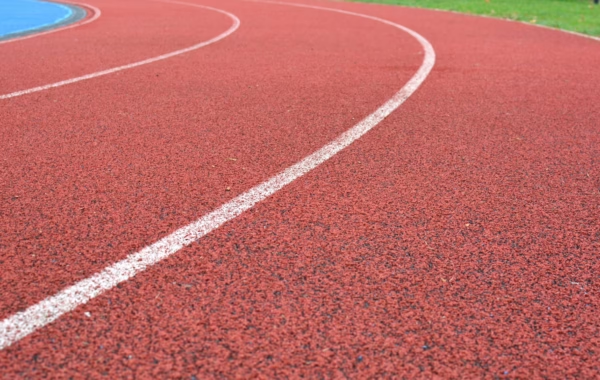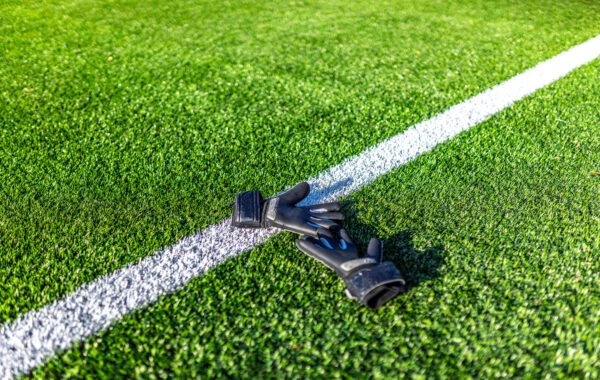
Published in:
How To INSTAL A PADEL COURT ?
PHASE 1: SITE PREPARATION
1. Surveying & Marking
- Conduct a site survey and verify dimensions (court size: 20m x 10m).
- Mark out the court boundaries with string lines and stakes.
- Confirm orientation (ideally north-south to reduce sun glare).
2. Excavation & Earthworks
- Clear vegetation, debris, and topsoil.
- Excavate the area to the required depth (typically 30–50 cm) depending on soil conditions and drainage needs.
3. Base Preparation
- Install compacted sub-base (e.g., crushed stone 15–30 cm thick).
- Apply a layer of concrete slab:
- Thickness: 15–20 cm reinforced concrete
- Slope: 1% to promote water drainage (if no internal drainage system)
- Add steel mesh reinforcement
PHASE 2: STRUCTURE INSTALLATION
4. Anchor Plate & Post Fixing
- Mark and drill holes for the anchor plates of the steel structure.
- Fix steel columns and frames for glass and mesh panels using chemical anchors or anchor bolts.
- Ensure everything is level and aligned.
5. Steel Structure Assembly
- Erect the steel structure, which includes:
- Corner columns
- Intermediate posts (for mesh and lighting)
- Top beams for lateral support
- Steel should be hot-dip galvanized and powder-coated (anti-corrosion).
6. Glass Panel Installation
- Install 12 mm tempered glass (or as specified):
- Back walls: 3m high (4 panels each side)
- Side walls: 3m to 2m stepped glass panels
- Use rubber gaskets and stainless-steel clamps to secure glass safely.
- Ensure proper alignment and no glass-to-glass contact.
7. Fence Mesh Installation
- Install welded mesh panels (50×50 mm, 4 mm thick) on sides and tops.
- Attach panels to steel posts with clamps or bolts.
- All mesh panels must be tensioned and aligned.
PHASE 3: FLOORING SYSTEM
8. Surface Finishing
- Clean and level the concrete slab before flooring.
- Install synthetic turf (monofilament or fibrillated artificial grass):
- Apply double-sided PU adhesive tape or polyurethane glue.
- Roll out turf sections, cut edges to fit court lines precisely.
- Seam joints using specialized turf seam tape and adhesive.
- Infill with silica sand (0.5–1 mm): 8–12 kg/m² depending on turf spec.
9. Court Markings
- Use white or yellow tufted lines (preferred), or paint as an alternative.
- Ensure lines are straight, precisely measured, and securely fixed/glued.
PHASE 4: LIGHTING & ACCESSORIES
10. Lighting Installation
- Install 4 or 8 LED floodlights on poles (standard: 6m height).
- Each light: minimum 200W – 400W, high CRI (>80).
- Position lights to avoid player glare and ensure uniform coverage.
11. Net Post and Net Installation
- Fix net posts (galvanized and powder-coated) at center line with anchors.
- Attach tensioned net (10m length, 88 cm high at center, 92 cm at posts).
- Net should have a center strap and steel tension cable.
PHASE 5: FINISHING AND TESTING
12. Inspection & Final Adjustments
- Check:
- Glass alignment and tightness
- Turf infill and seams
- Fence stability
- Lighting operation
- Net height and tension
- Clean the court of all debris and materials.
13. Handover & Maintenance Guidelines
- Provide:
- Warranty documents
- Maintenance manual (glass cleaning, turf brushing, sand refilling)
- Contact for after-sales service
✅ OPTIONAL ADDITIONS
- Drainage channels (for outdoor courts)
- Surround seating or fencing
- Branding or sponsor logos
- CCTV or camera systems
📦 MATERIALS SUMMARY:
| Item | Description |
|---|---|
| Concrete Slab | 15–20 cm thick, reinforced |
| Steel Structure | Hot-dip galvanized & powder-coated |
| Glass Panels | 12mm tempered, polished edges |
| Fence Mesh | 50x50mm, 4mm galvanized wire |
| Artificial Grass | Monofilament or fibrillated, tufted lines |
| Sand Infill | Silica sand 0.5–1 mm |
| Net & Posts | Regulation-compliant |
| Lighting | 200W–400W LED floodlights |
| Fasteners & Anchors | Stainless steel or galvanized |
| PU Adhesive | For turf and seam bonding |


